Hisako Takihana
출생 : 1906-03-04, Kyoto, Kyoto Prefecture, Japan
사망 : 1985-02-12

Tetsuro's mother
A delicate study of the relationship between two disillusioned young people, shot in atmospheric monochrome among Tokyo's decaying lumberyards and the inhospitable snowscapes of the north.

Based on a story by Akiyuki Nosaka.

Shinkichi, a peasant employed as a cloth-dyer, has a dream: in the midst of the civil war which ravages Japan, he hopes to revive the long-banned custom of the Kyoto Gion Festival, and by doing so, bring together the warring clans and rampaging brigands in peaceful celebration.
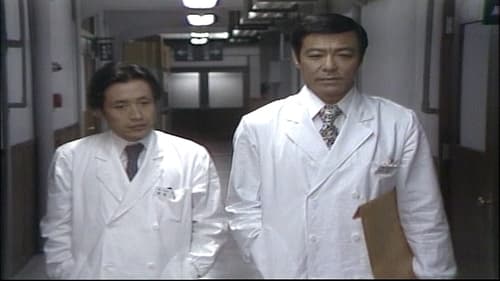
The story contrasts the life of two doctors, former classmates and now both assistant professors at Naniwa University Hospital in Osaka. The brilliant and ambitious surgeon Goro Zaizen stops at nothing to rise to a position of eminence and authority, while the friendly Shuji Satomi busies himself with his patients and research.

When a corrupt magistrate rapes Oshima, Masa (Raizō Ichikawa) avenges her by killing the officer, becoming thereby a fugitive, haunted and grief-stricken by the fact that Oshima committed suicide. Going underground in the gambling world, perpetually hiding from the law, Masa eventually meets a young woman named Onaka, who looks exactly like Oshima. Tales having two look-alike heroines are a commonplace in Japanese period films, a plot affectation inherited from the kabuki theater. Based on a novel by Shin Hasegawa, Nakayama shichiri was already twice filmed in 1930, one version directed by Namio Ochiai, and from which less than 40 minutes survive, the other directed by Kyotaro Namiki. Both are silent films, preserved by the Makino film institute.

Mrs. Umezu
Obscure Masamura film shot in 1961

Kiyo, the maid
Shikiko Oba is nimble with her fingers and teaches dressmaking and designing. Among her pupils are Rinko, Katsumi and Tomie. Ginshiro, who is as shrewd as the shrewdest of the older generation of dyed-in-the-wool Osaka businessmen, steps into picture and Shikiko soon feels that he is indispensable to her. But the advent of a man in their midst breaks up the harmony that has existed among the four women, as gradually he forces himself on them with promises of love.

Otowa
One of Japan's most popular stories is the tale of Kutsukake Tokijiro, a traveling gambler who finds that he must take care of the wife and child of a yakuza he had been forced by the code of the gamblers to fight man to man. In a brilliant performance from super-star Ichikawa Raizo, with strong support from two of the greats from Toho, Shimura Takashi (7 Samurai) and Aratama Michiyo (Sword of Doom) the heartfelt story reaches new heights. Tokijiro, having learned the true nature of the boss to whom he was obligated for having spent a night and eaten at the gang's headquarters takes up arms against them in a running battle fought across the back roads of the entire nation. Another powerful rendition of this superb story, it is not to be missed!
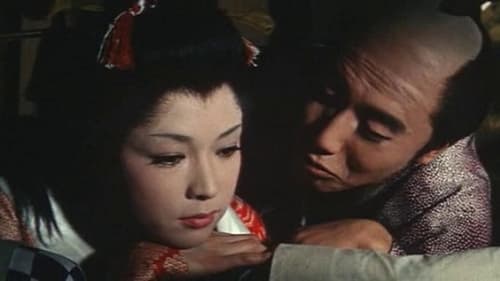
병적이다 싶을정도로 색을 밝히는 남자 이야기.

Yasuhiko's Mother
In Meiji era Japan a sixth grade boy is smart, likable and confident and owing to his academic success liked by his teacher. Things are not going well at home, however, where his father does not work leaving the mother to toil . With the boy's family having no money he cannot progress his education and has to drop out of school. A neighbour, who is a bookstore owner, offers the family money to allow the boy to continue his schooling, but the father is too proud to accept and rebuffs the offer forcing the boy to work.
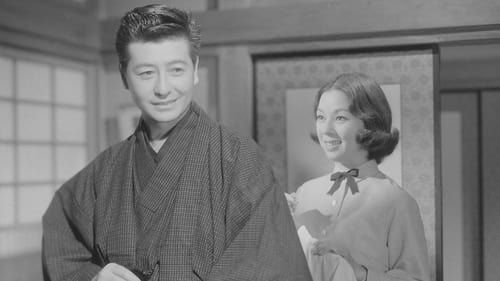
Ko Tanomura, who was ordered to study abroad in the United States for two years as a youth executive at Haneda Airport and a royal industry, was looking for the appearance of Sako Ozegawa from a large number of see-offs. --Kou's father, Cheongju, is an authority on religious studies, and Orie is his third wife. Eiko, who is a distant relative of Orie, came to Tokyo to care for her sick. Two months ago, Ko, who first met Eiko, was deeply moved...

The first story concerns an attractive young woman who works in a Tokyo nightclub. Her plan for a solid financial future has a double whammy. In the second story, a beautiful young woman is employed by an unscrupulous real estate agent to convince male clients to invest in worthless property. The last story is about a widowed geisha who has no real financial worries and who falls in love with a forger.

A journalist decides to do his own investigation after a series of strange murders are committed during a local election campaign.

Sugiko Nonomiya
lchiro, the president of Mihara & Co., is henpecked by his wife Momoko, a clever and beautiful woman, but prattling and intrusive. She makes her younger sister Nashiko marry lchiro's younger brother, Jiro, manager of his company and now plans to marry her youngest sister Kyoko to her husband's youngest brother, Saburo. This means her domination of the Miharas and their business, a fine triple play which would gain her the title of "The Most Valuable Madam." However, in opposition to Momoko, Kyoko boldly declares that she will never marry Saburo. However Saburo is a most attractive young man and attracts Kyoko. Will she or her elder sister be able to win the title of "The Most Valuable Madam"?
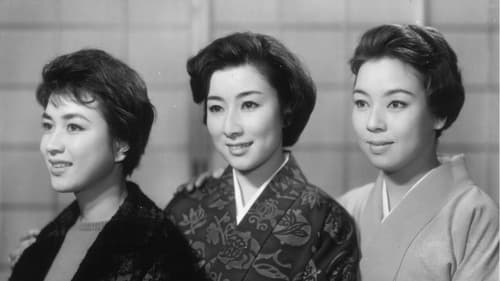
1959 adaptation of Junichiro Tanizaki's novel.

1958 Theater of Life adaptation.
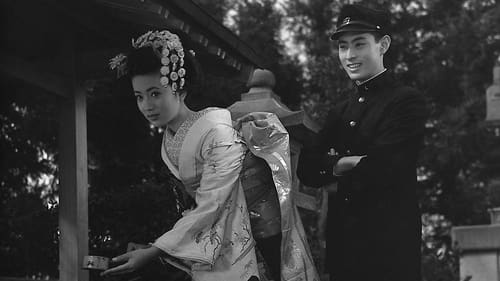
A youth lyrical story of pure love of a girl who grew up in the Kyoto Gion quarter, with a geisha mother and sisters Maiko and a college student.
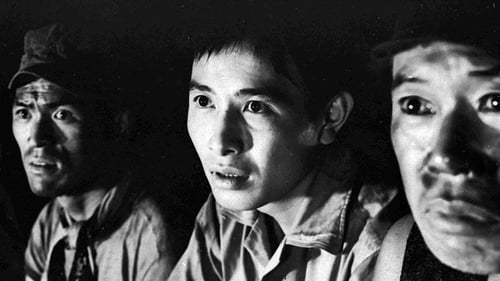
Toshie Sunaga
Based on a 1956 television feature on Japan’s national network, NHK, this is one of Uchida’s rarest films. A socially conscious drama with a contemporary backdrop, Dotanba focuses on the attempts to rescue a group of trapped miners. The title is a figure of speech — (essentially “last minute” or “eleventh hour”) — that refers to a situation of peril. The film boasts a script co-written by Uchida and Akira Kurosawa’s frequent screenwriter, Shinobu Hashimoto, and stars Kurosawa’s frequent star Takashi Shimura.
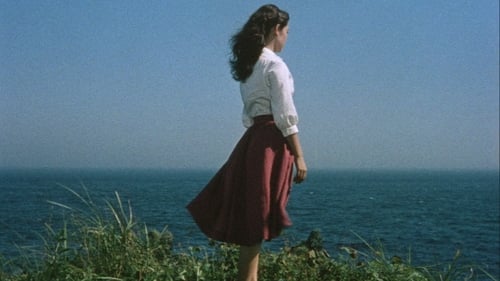
작은 마을에서 할머니와 단둘이 살던 오노 유코는 갑작스러운 할머니의 죽음과 함께 자신이 아버지와 비서 사이에서 태어난 사생아이며, 생모는 2차 대전 이후에 연락이 끊겨 할머니가 맡아 기르게 되었음을 알게 된다. 도쿄에서 부유하게 살고 있는 계모의 집에서 살게 된 그녀는 계모와 이복형제들의 멸시를 받으며 하녀처럼 생활하지만 언제나 밝은 면만을 보며 자신의 삶을 긍정적으로 받아들이는 '명랑소녀'이다.

Adaptation of the Yukio Mishima novel.

A poor peasant, after years of scraping, becomes a rich and powerful Osaka merchant. Mizoguchi Kenji's final project; he died before completing it and directing duties turned over to Yoshimura Kozaburo.

Directed by Yoshiro Kawazu
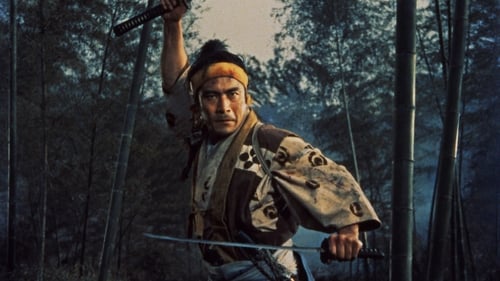
(uncredited)
다케조는 일본에서 가장 위대한 검술가로 명성을 쌓은 몇 년 후 교토로 돌아온다. 오쓰는 그를 기다렸으나 그녀를 위해 온 것이 아니라 지역 최고 검술가의 장에게 도전하기 위해서이다. ... 다케조는 승리로 교토를 떠나며 오츠에 대한 자신의 사랑을 선언하지만 ... 다시 또 그는 혼자 떠난다.

Based on the play ”Mabuta no haha” by famed author Shin Hasegawa, this is the first major starring role for Tomisaburo Wakayama. This heartfelt story concerns a wandering gambler from Banba by the name of Chutaro. Set during the Tenpo Period, Chutaro runs afoul of Boss Sukegoro of Iioka. Pursued by vengeance seeking swordsmen, Chutaro displays his phenomenal martial art skills. Abandoned as a child, he seeks to find his long lost mother, while at the same time fighting off numerous attacks by Iioka’s men.

A young woman decides to leave school in order to help her sister.

Film directed by Eichi Koishi and starring Wakao Ayako

A married couple looking for an apartment move in with the husband's co-worker, a widower. The husband becomes jealous of the widower and his wife.
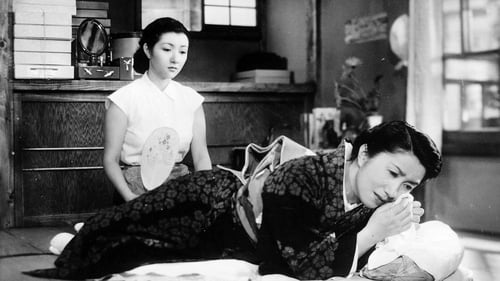
Tome
관광버스 안내원을 하는 키요코의 가족은 도쿄의 서민 동네에 살고 있다. 오빠와 두 언니, 그리고 막내 키요코의 4형제는 모두 아버지가 달라서인지 다툼이 그치질 않는다. 지긋지긋하게 싸우는 가족들의 모습에 질린 키요코는 집을 나와 하숙을 시작하게 된다. 나루세 미키오 감독이 다이에이 영화사에서 찍은 최초의 영화로 익숙하지 않은 환경에서의 촬영이었으나, 가족들이 각자의 마음을 숨긴 채 소바를 먹는 장면은 나루세 미키오 특유의 시선극을 잘 보여준다. 20세기 중반 일본 영화의 황금기를 이끌었던 거장 나루세 미키오의 대표작

Soichi Ataka is the eldest son of Ataka family. Although mentally challenged, he's a person with a gentle heart. Soichi's wife, Kuniko is devoted to her husband and together the couple runs the family farm. Their happy family life comes to an abrupt halt when Soichi's half-brother, Joji returns with his wife Masako after failing in a business.

Once an average and seemingly ordinary Tokyo girl, she suddenly finds herself as a TV star owing to her discovery by a casting company, which noticed photographs that her cousin had sent. When another actress falls ill she is given the role instead. Her first film is a success propelling the young actress to popularity, her own fans, money and a house. While everything looks dandy from the outside not all is well within the family however.

Atsuko is an office secretary who is also her family's primary source of income and caretaker in postwar Japan.
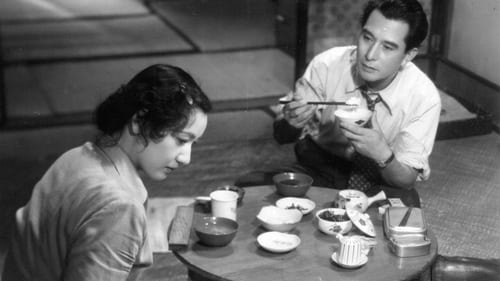
Sumi Takenaka
결혼한 지 5년이 되어가는 미치요와 하쓰노스케는 점차 서로에게 권태를 느끼기 시작한다. 하쓰노스케는 작은 회사에서 증권 중개인으로, 미치요는 집안일을 하며 일상을 보낸다. 그러나 그들의 틀에 박힌 생활도 하쓰노스케의 조카인 사토코의 갑작스러운 방문으로 균열이 일어나는데...

The Stormy Era of Twenty Years

Directed by Senkichi Taniguchi

Jidai-geki about the life of Yasubei Nakayama, a famous ronin who did participate in the revenge against Lord Kira Yoshinaka as detailed in Japan's famous epic Chushingura

Ogin
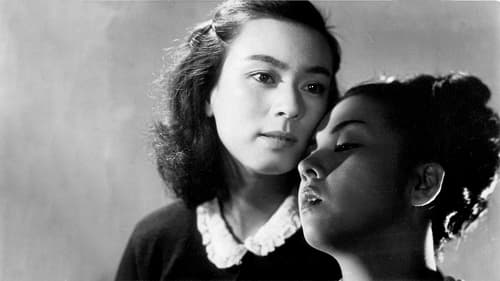
기온의 게이샤 오키쿠의 딸로 무언가에 대한 반발심에 만나는 남자를 수시로 갈아치우는 기미쵸(君蝶)와 시청에서 근무하는 여동생을 비교하며 화류계를 리얼하게 묘사함. 각본 신도 가네토가 미조구치 겐지에의 오마쥬로 써내려간 작품.

Adaptation of a novel by Yojiro Ishizaka, originally released in two parts.

Kyoko Matsuo

Melodrama by Kiyoshi Saeki

A grade school in Tokyo, where students curse and gamble, has a pond on-premises with one particular teacher who is in charge and takes care of it. The pond holds a number of carp, but someone is snatching them. Amidst the student, one lives with his mother in poverty. The mother works at a factory whose owner is a member of the parent-teacher association and asks her son to help her employer's son to help with homework. Her son is not happy spending time doing this. Finally one day the teacher finds out who is stealing the carp when the poor boy finds out and reports it. It is a child who is not attending the school.

Family Blossoms

Based on the comic by Kaoru Akiyoshi

Mother and younglings

This film begins with a teacher describing to his students how brave the crew was which died as result of Japan's first submarine accident. The film then follows two of the pupils, one becomes a submarine captain and the other designs submarines.

Goichi's mother - Oren
Tomotaka Tasaka's A Pebble by the Wayside (Robo no Ishi), made in 1938 and taken from a Yuzo Yamamoto novel, takes place around 1902, was about a young boy brought up entirely by his mother since his drunken father is never home. An intelligent teacher wants to send him to middle school, but instead the father apprentices him to a clothing store to which he is in debt. The mother dies and the boy is forced to quit work when his father insults the store owner. Later the boy goes to Tokyo, but only to continue his hardships. First he is forced to do a maid's job at a boarding house and later is used by an old woman to steal at funerals. Finally he is rescued by the teacher, whom he meets in Tokyo.

One of Uchida’s early sound films, Unending Advance is based on a curious story by Yasujiro Ozu, in which an examination of the quotidian problems of a middle-aged salaryman and his family segues into an idyllic dream of an implausible future. The surviving print, although incomplete, offers an essential glimpse into Uchida’s prewar period, when he was associated more with realist dramas than with the period films that dominated his work after the war.

Two brothers run a factory canning crabs. The elder brother Kotaro is righteous and insists on honesty. The younger brother is fixated on money. They are polar opposites. When a boat sails out looking for crab and does not return one day the brothers begin to argue over how to run their facility. They had just received a large order from a foreign country and had obtained a loan from a lender that needed to be repaid.

Film about poet Ishikawa Takuboku

Oshin
Father, son Kentaro and daughter Ochiyo, who live on the banks of the Sumida River, regain their love for each other after family discord and separation. The film is considered lost.

Directed by Tomotaka Tasaka.
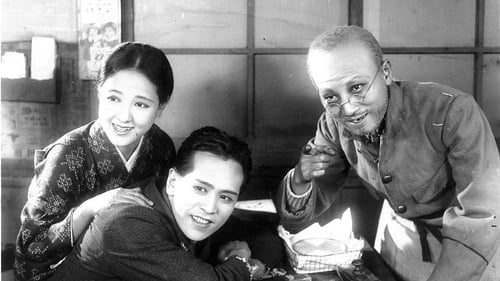
Oshizu
Sweat (1929) is a slapstick riff on tendency-film themes, as a bored young millionaire has his clothes stolen by a tramp; dressed in the tramp’s clothes, he has to accept work as a labourer. As the hero ends up building the mausoleum he had himself commissioned.

Directed by Kenji Mizoguchi.
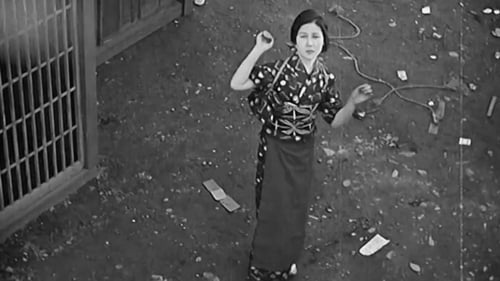
A classic melodramatic love tragedy addressing social inequality in feudal Japan, depicted in Kenji Mizoguchi's typical style. The nostalgic scenes of 1920s Tokyo provides a valuable visual experience set against the background of the title song, "Tokyo March." (Sadly, only 24 minutes of the film now survive.)

Nitta's wife
A twice-remade ironic comedy about a writer's encounter with a female thief.
































